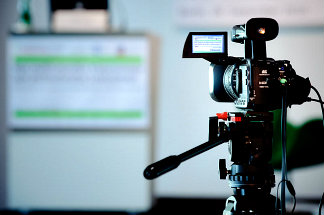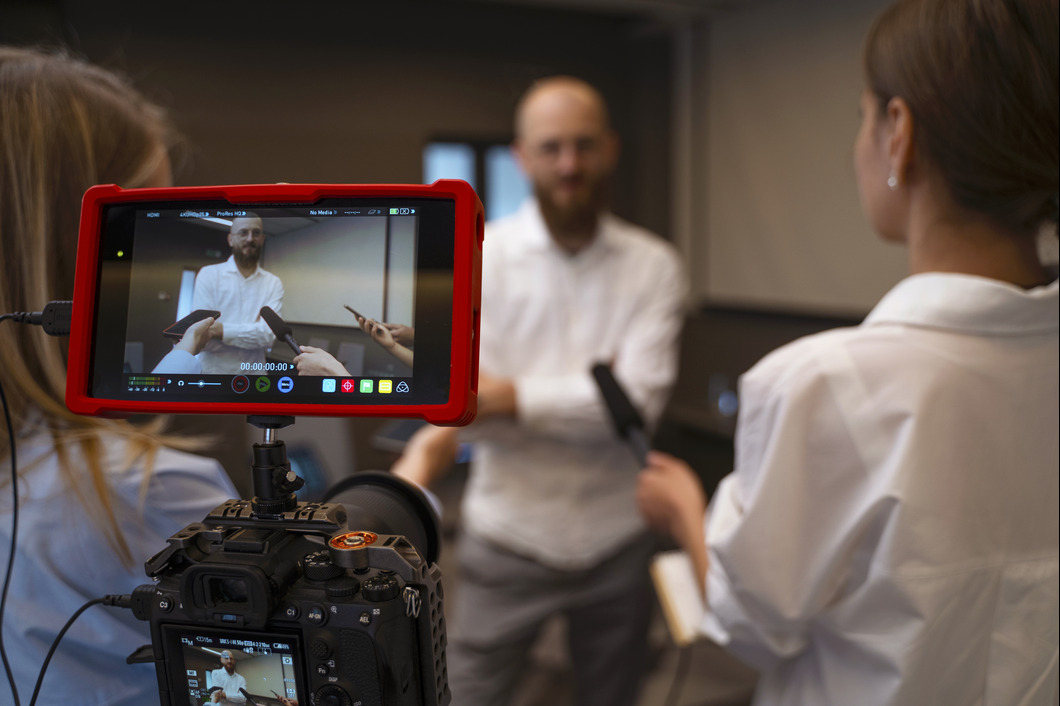Legal video depositions: A smart tool for preserving truthful testimony
The Significance of Legal Video Depositions in Modern Legal Providers: What You Need to Know
Lawful video depositions have come to be essential in today's lawful landscape. They supply a multidimensional view of witness testimonies that traditional records just can not match. By catching both non-verbal and spoken interaction, these depositions enhance the total understanding of a witness's credibility. The efficiency of video clip depositions hinges on various aspects, consisting of compliance with lawful standards and ideal methods. Discovering these aspects reveals their real relevance in contemporary legal services
What Are Legal Video Depositions?
Lawful video clip depositions work as an essential tool in the lawsuits procedure. They entail recording witness testimonies in a video style, catching both spoken and non-verbal interaction. This approach permits lawyers to record the demeanor, expressions, and reactions of witnesses, offering a richer context for the statement. Usually carried out in a regulated environment, these depositions are led by lawyers who ask inquiries while a stenotype reporter records the discussion. The resulting video clip can be vital for trial preparation, as it enables legal representatives to examine the trustworthiness of witnesses and fine-tune their methods. Additionally, legal video clip depositions can be made use of in different lawful contexts, varying from civil conflicts to criminal cases. The acoustic and visual elements of video clip depositions improve the discussion of evidence, making it an essential component in the contemporary legal landscape. Generally, they contribute considerably to the efficiency and effectiveness of legal process.

Advantages of Video Depositions Over Standard Approaches
Video clip depositions use countless advantages contrasted to standard methods of taking witness testaments. One significant benefit is the capability to capture both visual and audio aspects, giving a much more complete record of the witness's declarations. This double format enhances quality and allows lawyers to reference specific subtleties during test preparation. Furthermore, video depositions promote remote participation, making it simpler for witnesses that may be inaccessible for in-person appearances due to geographical restrictions or wellness issues.Moreover, video depositions can speed up the total deposition procedure, decreasing the time and prices related to traveling and logistics. They additionally boost accessibility, as videotaped depositions can be easily shared amongst legal groups and referenced at any kind of time. This comfort contributes to far better instance management and prep work. On the whole, video clip depositions stand for a modern, effective approach to collecting witness testimonies, lining up with the evolving needs of the lawful occupation.
The Role of Body Language and Tone in Testimonies

In lawful video depositions, body language and tone play crucial duties in sharing a witness's credibility and reliability. Nonverbal signs can give insights right into a witness's psychological state, affecting exactly how their testimony is viewed. Understanding the effect of these aspects is necessary for jurors and lawyers alike when assessing the reliability of a testament.
Nonverbal Interaction Insights
While spoken interaction is usually emphasized in legal statements, nonverbal cues such as body movement and tone play a vital function in conveying reliability and emotion. Observers of depositions may keep in mind that a witness's pose, gestures, and faces can substantially influence assumptions of dependability. As an example, regular eye call may signify confidence, while preventing look could recommend deceit or pain. The tone of voice-- its pitch, quantity, and rate-- can present sensations of genuineness or uncertainty. Attorneys have to be in harmony with these nonverbal signals, as they frequently offer essential context that complements spoken words. Recognizing these nuances can improve the effectiveness of depositions and affect the outcome of legal procedures.
Emotional Tone Impact
The emotional tone communicated during legal statements significantly affects exactly how a witness is viewed. Body movement, singing inflections, and facial expressions play vital duties fit the story of a statement. A witness displaying confidence via constant eye get in touch with and a tranquil tone can infuse a feeling of integrity and involvement. On the other hand, indications of anxiety, such as fidgeting or an unsteady voice, might lead to apprehension concerning their account. The subtleties of psychological expression can affect the interpretation of truths, making it essential for attorneys to acknowledge these cues. In video depositions, the aesthetic and acoustic parts combine, emphasizing the importance of psychological tone in communicating genuineness and truthfulness within the legal process.
Reliability and Reliability
A crucial consider developing credibility and credibility throughout testaments depends on the witness's body language and intonation. Onlookers commonly count on non-verbal signs-- such as eye get in touch with, position, and motions-- to assess a witness's sincerity. A witness that preserves eye call and presents open body language might be viewed as more reputable and truthful than one that avoids eye call or appears shut off. Additionally, tone of voice plays a crucial role; a stable, tranquil tone can enhance the reliability of the testament, while changes in pitch or quantity may raise uncertainties. Inevitably, the mix of body movement and vocal tone considerably influences just how a witness's declarations are received and translated in a legal context.
Finest Practices for Performing Video Clip Depositions
Performing video clip depositions requires cautious preparation and implementation to assure a reliable and clear presentation of testimony. It is important to pick a silent, well-lit area to minimize diversions and safe and secure optimal video quality. The tools ought to be evaluated in advancement, including video cameras, microphones, and lights, to prevent technological concerns during the deposition.Next, parties entailed should evaluate the format and procedures in advance, making certain that everyone comprehends their roles. The deponent ought to be oriented on the procedure, including just how to respond clearly and concisely.Additionally, keeping a specialist disposition throughout the session is necessary. This includes avoiding speaking over one another and confirming that all questions are guided properly. Lastly, it is crucial to tape-record the deposition in a style that enables very easy playback and evaluation, maintaining the integrity of the statement for future use.
Legal Factors To Consider and Conformity Issues
Exactly how do lawful considerations and conformity problems affect the effectiveness of video clip depositions? Legal professionals need to browse a complex landscape of policies, ensuring that video clip depositions comply with administrative guidelines and requirements. Compliance with regulations concerning personal privacy, approval, and recording approaches is necessary. For instance, obtaining explicit permission from all events entailed is necessary to prevent lawful repercussions.Additionally, the admissibility of video proof in court can depend upon conformity with procedural requirements. Making certain that the devices made use of meets technological requirements is also essential, as bad top quality can threaten the deposition's reliability.Moreover, attorneys must recognize any certain state laws that govern video clip depositions, as these can vary considerably. Failing to deal with these factors to consider can not only threaten the integrity of the deposition however additionally affect the overall situation approach, inevitably affecting the customer's lawful end results.
Exactly How Video Clip Depositions Influence Jury Perception
While video depositions can function as effective tools in lawful proceedings, their impact on court understanding is significant. The auditory and visual components of video clip recordings give jurors with a much more comprehensive understanding of witness attitude, credibility, and emotional reactions. This multimedia method can enhance the jurors' ability to analyze the dependability of testimony contrasted to traditional text-based transcripts.Moreover, video depositions allow jurors to observe body language, tone of voice, and faces, every one of which can influence their interpretation of the witness's more helpful hints statements. The existence of a witness on screen can humanize them, fostering compassion and connection, which may guide jurors' viewpoints. On the other hand, a witness that appears anonymous undependable or incredibly elusive on video may cause adverse understandings that affect a jury's choice. Ultimately, the dynamic nature of video depositions plays an essential function in forming exactly how jurors analyze evidence and reach their decisions.
The Future of Video Clip Depositions in Legal Technique
As innovations in modern technology continue to improve the legal landscape, the future of video clip depositions is poised for significant development. Innovations such as expert system, virtual reality, and improved video clip conferencing devices are anticipated to simplify the deposition procedure and enhance accessibility. Lawyers may utilize AI-driven analytics to assess witness credibility and instance toughness much more effectively.Moreover, the combination of digital truth can allow courts to experience immersive simulations of depositions, giving much deeper context and understanding. Additionally, the trend toward remote depositions is most likely to linger, offering better adaptability for customers and lawyers alike.As remote work becomes progressively normalized, video clip depositions will likely become conventional practice, reducing prices and time restrictions connected with standard techniques. In general, these technological improvements promise to boost the efficiency, performance, and availability of video clip depositions in lawful technique, ultimately transforming exactly how lawyers prepare for test.
Frequently Asked Questions
Just How Much Do Lawful Video Clip Depositions Commonly Cost?

Can Video Clip Depositions Be Made Use Of in Any Kind Of Kind Of Instance?
Video depositions can be utilized in numerous types of instances, consisting of civil, criminal, and family members legislation. Their versatility enables attorneys to present witness testimonies successfully, adjusting to the specific demands of different legal scenarios.
What Devices Is Required for a Video Deposition?
To conduct a video deposition, necessary tools consists of a high-grade electronic camera, microphone, lighting, and a trustworthy recording device. In addition, a computer system with modifying software may be required for post-production and formatting the final video clip.
How Lengthy Does a Common Video Clip Deposition Last?
A regular Check Out Your URL video clip deposition lasts between 2 to 4 hours, relying on the intricacy of the situation and the number of questions presented. Prolonged sessions may occur, however breaks are normally incorporated for individual comfort.

Are Video Clip Depositions Admissible in Court?
Video clip depositions are normally acceptable in court, offered they follow lawful requirements and guidelines of evidence. Their use improves clarity and preserves witness statement, aiding in the judicial procedure during hearings and trials. Legal video depositions have ended up being crucial in today's legal landscape. Additionally, lawful video clip depositions can be made use of in numerous legal contexts, varying from civil conflicts to criminal situations. Additionally, video clip depositions assist in remote involvement, making it easier for witnesses who might be unavailable for in-person appearances due to geographical restrictions or health and wellness issues.Moreover, video clip depositions can accelerate the general deposition procedure, minimizing the time and prices connected with travel and logistics. Making sure that the equipment used meets technical standards is additionally essential, as bad high quality can threaten the deposition's reliability.Moreover, lawyers must be mindful of any details state laws that regulate video clip depositions, as these can differ greatly. Furthermore, the fad towards remote depositions is most likely to continue, supplying better versatility for customers and lawyers alike.As remote work ends up being increasingly stabilized, video clip depositions will likely end up being common practice, minimizing expenses and time restraints linked with typical techniques.